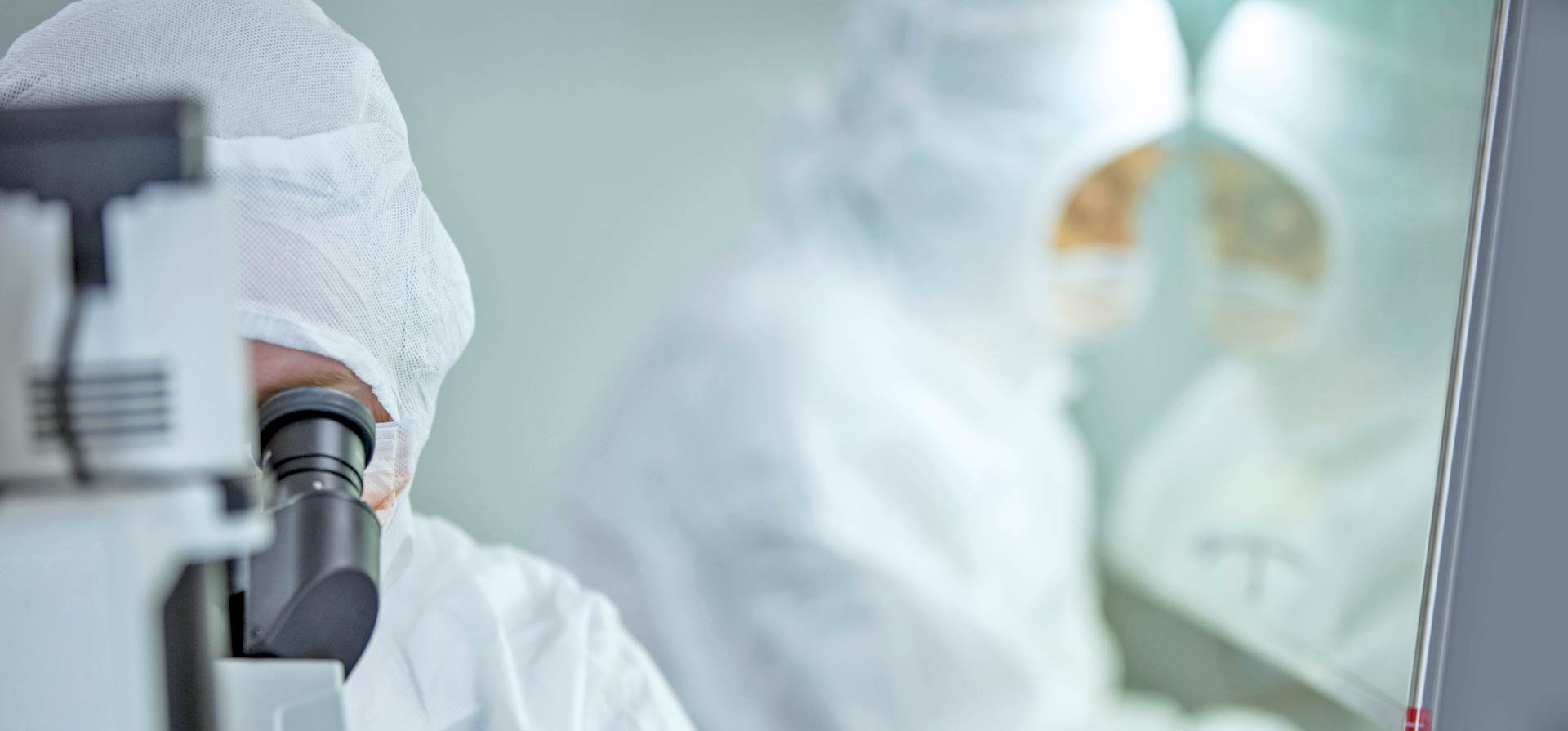Emerging cellular therapies continue to generate significant interest and activity in medical research. They represent possible new treatment avenues that could completely shift how cancer is treated – if the research bears out this potential. Baylor Scott & White Research Institute (BSWRI) is working to accelerate the progression of these types of clinical trials with its good manufacturing practices (cGMP) Core lab in Dallas, TX, which produces human cellular products for phase I clinical trials. It is a resource and facility unique to the program in North Texas, and one that has enabled BSWRI to deliver access to unique cellular therapy clinical trials to patients across the region.
Built in 2005, the 1,800 square-foot FDA-compliant facility features 560 square feet of clean room space and ample support space for gowning, storage, and freezer facilities. Every aspect of the design is intended to minimize the chance of cross-contamination and maximize product consistency, and the facility is run by a staff with over 25 years of collective experience in cellular product manufacturing.
The cGMP Core provides a suite of services that assist researchers through the FDA Investigational New Drug (IND) application process. After approval, they offer a customized approach to process development, manufacture, quality control, storage, and follow-up for each cellular product. Specifically, the facility features the following:
- Restricted access protections with three Class 10,000 (ISO 7) clean rooms
- Two clean rooms each containing six incubators, microscopy equipment, a Class 100 biological safety cabinet, a centrifuge, and an elutriator
- The third clean room containing a biosafety cabinet and a centrifuge
- The facility also contains sterile tube welders, an automated cell separator, an automated membrane filtration system, refrigerators, and freezers (controlled-rate, -30 degrees C, -80 degrees C, and liquid nitrogen vapor tanks)
For added safety and security, the facility’s custom environmental and equipment controls are monitored by an automated Rees System that is calibrated and validated annually.
Access to this type of in-house manufacturing facility allows BSWRI’s clinical trials teams to operate with unparalleled procedural agility during clinical trial scale-up. Cellular products can be customized to detailed specifications and can often be generated more quickly than would be possible with outside contract manufacturing. Furthermore, such a facility is well suited to the small batches needed for first-in-human pilot and phase I clinical trials. Given the rich infrastructure available through BSWRI, the cGMP Core can easily coordinate with other cores, such as its Bioinformatics, Flow Cytometry and Genomics Cores, to provide a robust tumor immune-monitoring service for clinical trial patients.
BSWRI’s cGMP Core has supported more than 10 completed clinical trials and provided treatments for over 200 clinical trial participants. The initial clinical trials focused on treating metastatic melanoma with dendritic cell immunotherapy. The clinical trials conducted at BSWRI have contributed to a growing body of data showing that dendritic cell vaccines can be reliably produced and safely delivered to patients.
More recent trials supported by the cGMP Core have included cellular treatments for hematologic malignancies, HIV, breast cancer, and pancreatic cancer. The cGMP Core integrates with the Swim Across America Innovative Clinical Trials Center at Baylor Charles A. Sammons Cancer Center, which provides a centralized hub for patients to receive treatment, laboratory evaluations, and follow-up for phase I clinical trials in Dallas, TX.
As the cGMP Core has expanded, BSWRI has also increased collaborations with sites across the country. For example, dendritic cell products manufactured at the BSWRI cGMP Core have been delivered to clinical trial participants at the University of Southern California and Mt. Sinai Medical Center. For another clinical trial, the cGMP Core is producing ex-vivo-activated natural killer cell products to be delivered to patients with a variety of solid tumors.
According to Jennifer Finholt, M.S., manager of the cGMP Core, “We have developed expertise with System-sponsored clinical trials and now we are looking to broaden our efforts toward treating patients and collaborating with outside entities.” She notes that they have the capacity to manufacture a wide range of cellular research products and cellular therapeutics, including CAR-T-cells, in collaboration with investigators who provide the genetic material to deliver the transgene.
“We continue to nurture and grow our industry relationships and add to our portfolio of successful programs completed using this state-of-the-art facility. As the largest not-for-profit healthcare system in Texas, we have the ability to introduce access to innovative new clinical trials to a very large and diverse population of patients who might not have other traditional treatment options – our focus is on expanding opportunities for collaboration and continuing to bring promising trials to our patients through this facility.”



